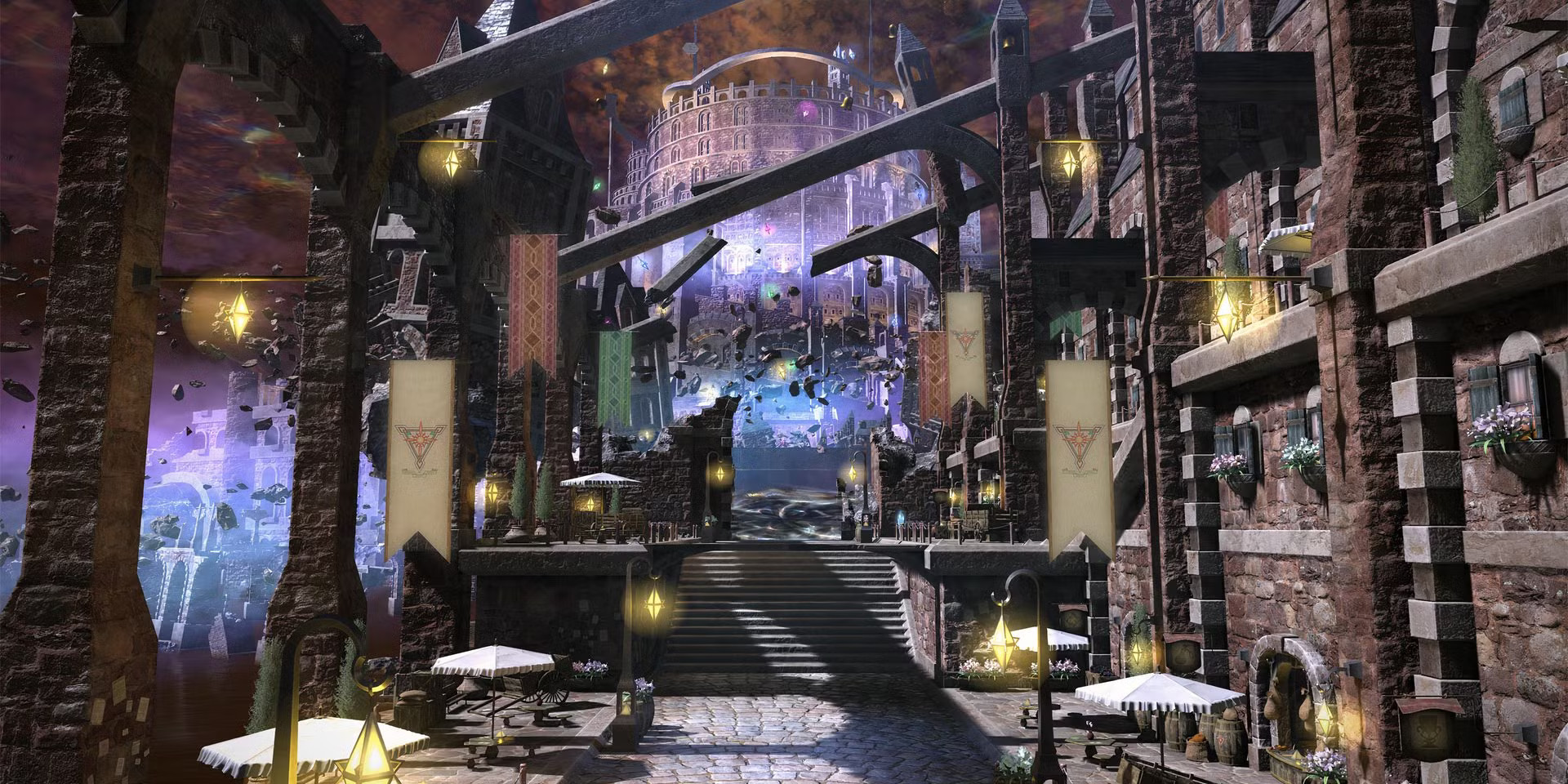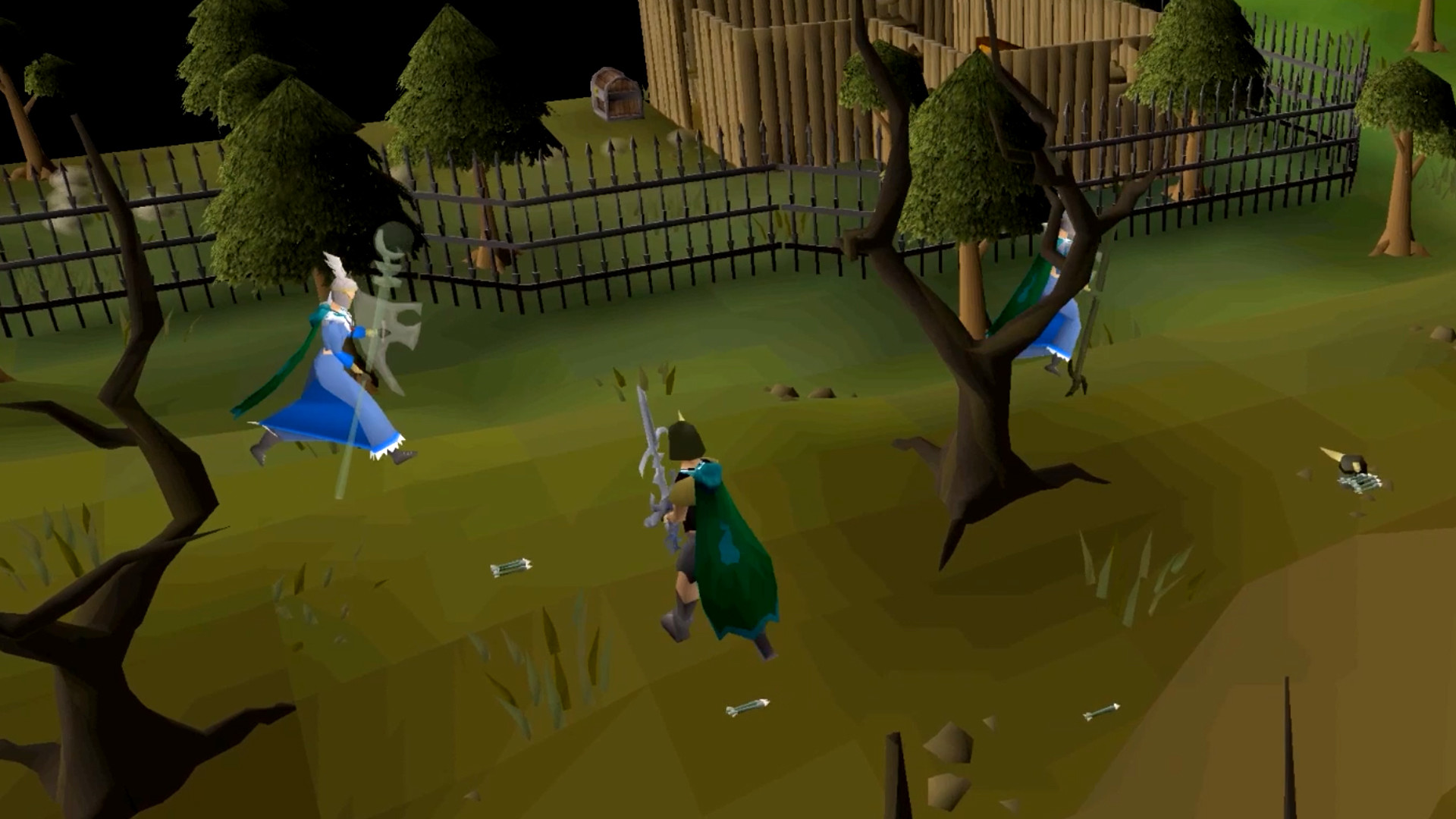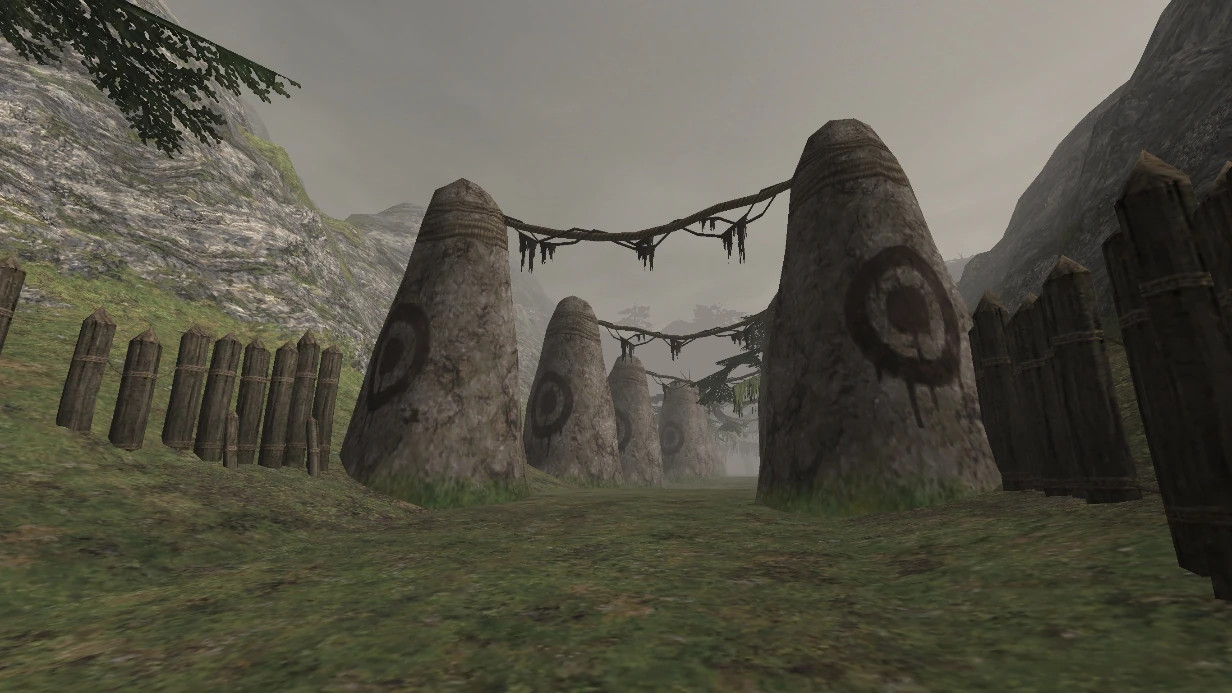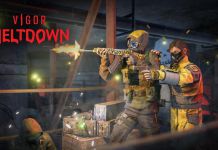Is It Ok For An MMORPG To Be "Different" At Endgame?
How many times has a friend said to you, "Oh, it's a totally different game at max level?"

This weekend, I was driving to and from Final Fantasy Trading Card Game locals thinking about some of the MMORPG feature pieces I wanted to write up this week. I got to thinking about something Jason Winter and I have mentioned on the podcast multiple times when talking about different MMOs (F2P or not). I'm honestly not sure why it popped into my head. One of the worst things you can tell Jason about an MMO you want him to try out is, "It's a totally different game at max level," or "it gets so much better at endgame."
On the surface, the comment does seem a bit dumb, though, he's not wrong. If an MMO or other game wants to capture your attention in an attempt to keep said attention for a long period of time (and hopefully get a little cash from you), it would be best served by presenting its best foot from the start. That just makes sense, right? Hook them early and keep them by building from there.
If you take the typical MMO endgame, though, does that approach really make sense? MMOs usually have two very different gaming experiences. New players hit the ground at level one and then level up their character, experience story (usually), learn about the MMO's world, and get acquainted with the myriad of systems in the game. Sure, maybe they hit up some training dungeons on the PvE side and some battlefields on the PvP side, but they are, again, more about training the player for future content.

Once at the "endgame," now those dungeons, raids, and PvP battles BECOME the primary gameplay loop. Sure there's maybe some side stuff like reputation grinds, daily quests, and other odds and ends, but we all know the loop. Hit the dungeons, get gear, hit the raids, and continue that path taking on more difficult versions of that content. The game's world also just became smaller for you as you won't likely head back to zones used for leveling.
Notice anything between those two lists? They aren't at all similar. It's almost like they're two different games entirely. Phase one trained you on all the skills and information needed to even take on phase two.
One of my favorite content creators, Josh Strife Hayes, even did a video almost 6 years ago focused on exactly this situation and why he doesn't like that this is generally the case. It's a great video and all of his points are certainly valid.
If you think about things a bit, though, it kind of has to be this way, doesn't it? At least in the current "MMO" mindset. These are two totally different experiences. Games like the upcoming Fellowship are trying to change this a bit. Do you like the typical MMO endgame content? That's all Fellowship offers.
We'll still have to wait and see how well the game executes on that idea and if it resonates with players, but maybe it is a better approach. However, doing so tells the players that actually like the leveling and story as part of the content that they should skip your game. It literally took minutes from me posting my preview video on Fellowship to start receiving comments from players who like the world exploration and leveling. They aren't interested in Fellowship since it offers none of that.
So where's the middle ground? Can an MMO offer just one of those things and be successful? Can an MMO that does offer both balance things in a way that makes the "endgame" more in line with everything that comes before it?
Josh paints this dichotomy between leveling and endgame as something being kept to sell boosts and other items, and I'm sure he's right in some cases, but I don't think that's all that's at play here. There's also the argument that at endgame, everything prior becomes pointless and obsolete, even what your character is wearing.
To change this, a core shift needs to happen in MMO design. Josh uses the example of Old School RuneScape as an idea on this front. Sure, you have levels, but nothing becomes "massively" unlocked at "max" levels. Unlocking parts of the world, raids, and quests just comes with actually moving questlines forward. You may stumble into things you aren't strong enough for by the time you get there, but you can always go level a bit, come back, and continue moving the events forward.
Leveling here isn't a "gate" to an endgame. The game never "starts over" once achieving a max level. You don't end up feeling like you played a portion of crap just to get to the game. One of my favorite MMORPGs ever did something similar. Final Fantasy XI does have a "level cap" and yes, there are certain things locked behind that cap, but as you're leveling, there is nothing stopping you from taking on certain challenges well before you're "level appropriate." You may get crunched, but you did the quests or story leading up to those events, so it's open to you.
For an even more basic example, search the internet for "1st run to Jeuno." This refers to making it to a central hub from a starting city in FFXI. The catch? There's literally nothing stopping you from getting there at level 1. It's a long walk and a very dangerous ones through parts of the world that contain baddies MUCH stronger than you, but you can do it if you're so inclined. It's a core memory for many FFXI players the first time they made the deadly dash.
This is the mindset shift needed. When the entire game is built around the idea of "max level doesn't unlock massive amounts of content for you and make all previous things irrelevant," you end up with a world that feels dangerous almost all the time. One that leads to dungeons and challenges that you can get to, but maybe cannot beat right now. Damn, does that design feel good when done right.
PvP is always a tricky bag when levels come into the equation and levels determine power to a certain extent, but we've seen games deal with this by automatically just boosting you to a set level when queuing up for PvP. It's a nifty solution and one that requires far less balancing from the devs. If all of your PvP is done at a certain level and everyone is given that level when in PvP, it's accessible from the start at the level of difficulty you intend it to be at "endgame."
I'm hugely in favor of this design methodology. In fact, I prefer it.

However, I am also one of those weird people that enjoy both "phases" of traditionally built MMORPGs. I WANT both of those experiences sometimes. To me, I'm ok with your endgame being different from your pre-endgame. That comes with the HUGE caveat that BOTH must be equally interesting to me, even if it's for different reasons. If your leveling literally just feels like you're time-gating me from endgame, I'm out. If you've created an engaging leveling experience that preps me for endgame, then cool, I'm in.
However, I think Josh's point of leveling being used for selling boosts has become more and more accurate as the years go by. There's fewer and fewer MMOS that I'm willing to complete leveling because it just isn't engaging. I will not buy your boosts, either. If you can't be bothered to create something interesting, I won't be upset leaving your game early.
It's about balance, and it isn't easy. Motives make a big difference here, too. However, if you can do what FFXI does, rather than what FFXIV does, I'm all for it. FFXIV is a great example of the "endgame" being the goal. It's also the one, currently, that suffers the most from leveling not being great. Hell, the team has had multiple passes at leveling to "speed things up" and "reduce quest bloat." That should tell you a little something right there. At endgame, it's also the reason why I play a new FFXIV patch, complete everything from it that I want in a week, then go play something else. They can't possibly generate content to the extent needed to keep me there.
So yeah, I guess my answer is "be more like FFXI," and I'm not a bit surprised by that.
Related Articles
About the Author

Mike “Magicman” Byrne has been a part of the MMOBomb family for years and serves as the site’s current Editor-in-Chief. His love for MMOs and gaming in general has led him to covering games for numerous gaming websites including Gamebreaker TV and XIV Nation where he proudly displays his fanboy flag for FFXIV:ARR.
More Stories by Michael ByrneRead Next

Gameplay and storytelling are both important to RPGs. So how do devs weigh that?
You May Enjoy

Meltdown introduces “nuclear chaos” to the game.

And no, this isn't an "I met my wife in a MMO" story.

One unfortunate change includes dropping German and French localization.

Bungie recently announced Marathon would be buy-to-play, but the game is designed for matches that require quite a few people.
Then that structure of story campaign, then doing any remaining other activities for end game, that's not a MMO thing, that's a RPG thing, that has been in at least some RPGs since before there were online ones, just in a limited capacity (ex: those extra bosses in Final Fantasy games, or finding collectibles). That's the thing, so many mix up MMO, with RPG, then people like Force Gaming, another content creator, gets all confused when he runs into an online game that isn't a RPG, that he may even declare it not a MMO, like he did with Planet Side 2.
Regarding stories in online games, that was just recently discussed here in the "How Much Story Is Too Much Story In Games?" article, where I posted how I play online games for the game play, and the non-online ones more for the story. Over time, I find the story in at least most online games, just falls apart, as they keep dragging it out over years, but clearly ran out of good ideas long ago. Then the game will end, before the story does.
Things being this way to sell boosters is a mentality that seems to mostly come from those rush to end game people who only care about raiding, and see everything before it (story) as useless. There's also the issue of the monetize everything efforts in online games these days, mostly stemming from almost all online games being free to play, and there being so many of them now. I usually like the levelling phase of online RPGs, not for the story, but as it is where you feel progression the most, while it grinds to a crawl at end game.